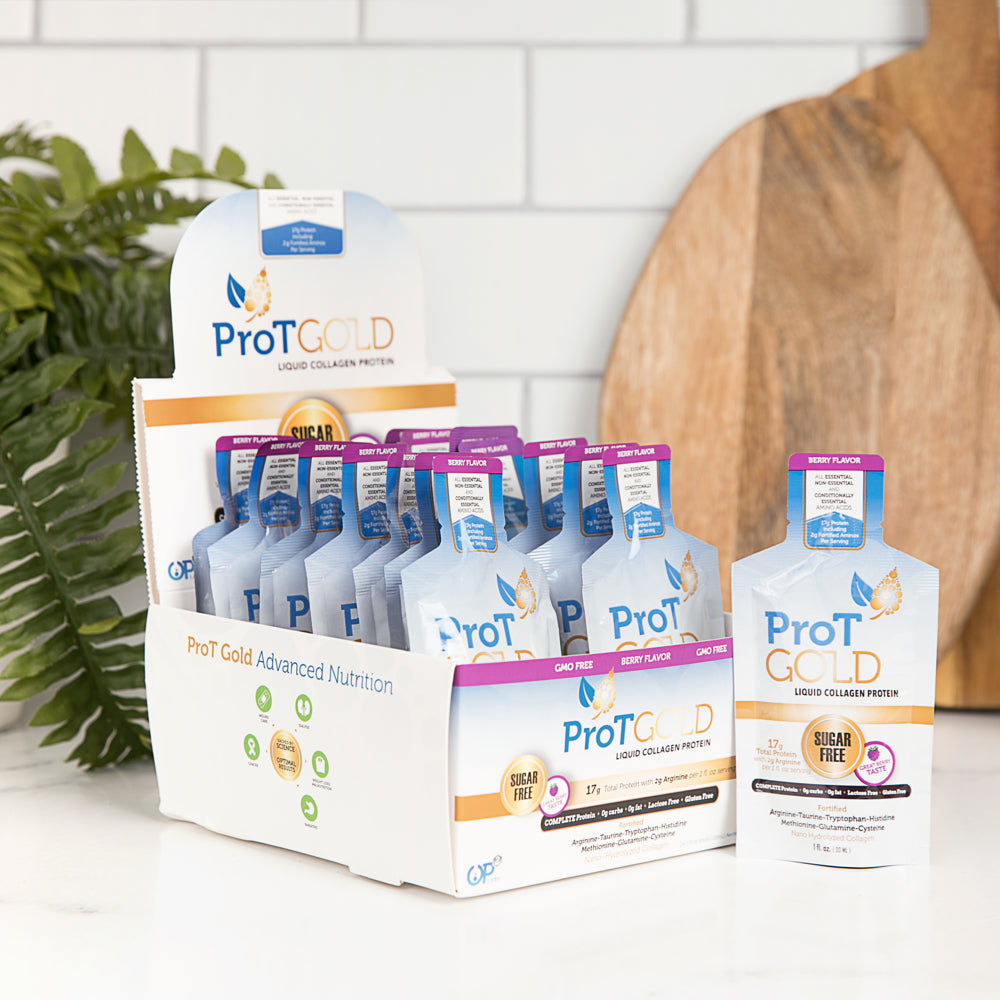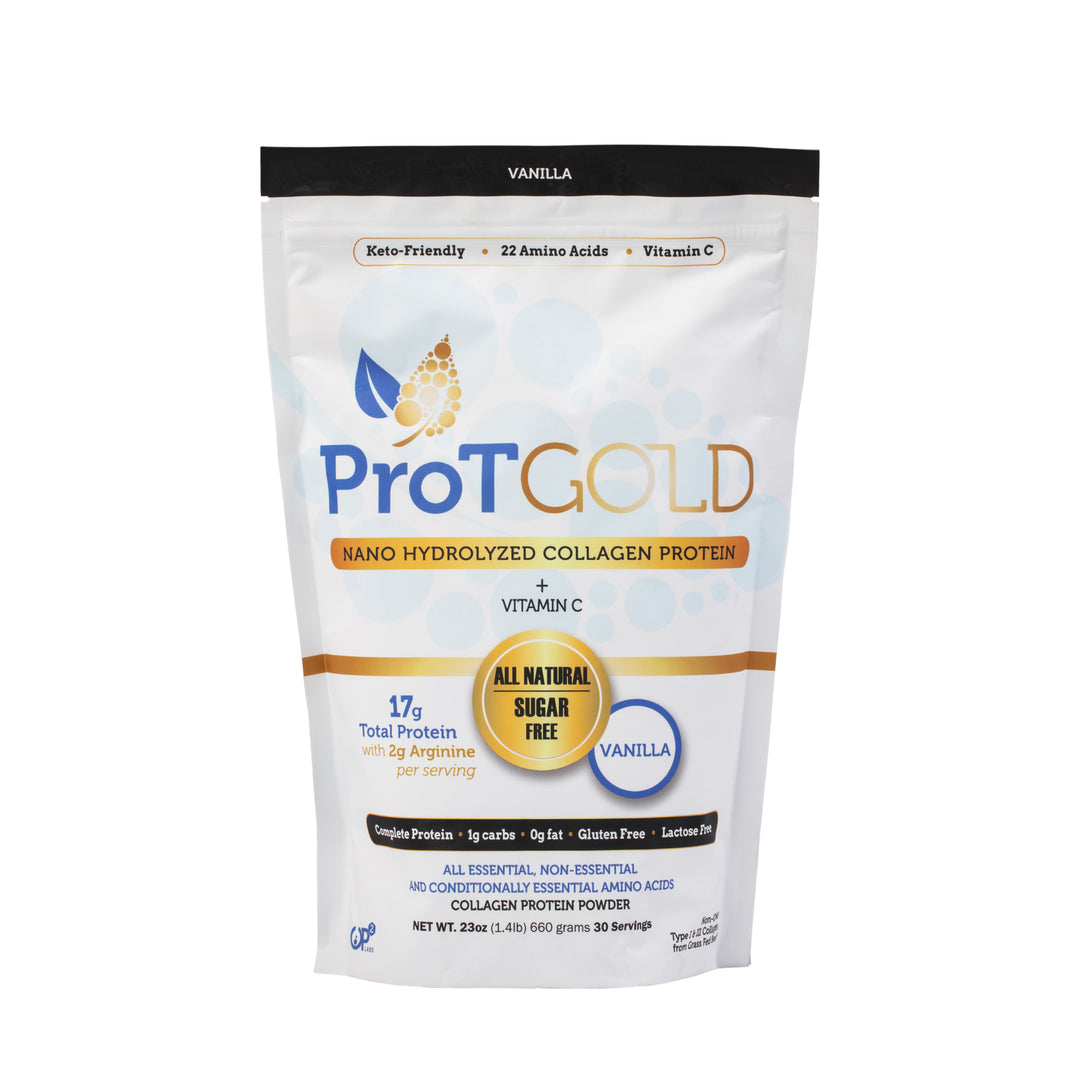How to Reduce Oxidative Stress: 7 Tips
Oxidative stress is one of the leading causes of aging. It can wreak havoc on your body - but there is still so much we don’t understand about it. One thing we know for sure: it’s important to learn how to reduce oxidative stress if you want to boost your longevity.
Before you learn how to reduce oxidative stress, it’s important to understand what oxidative stress is. Let’s take a look at this phenomenon so you can learn how to combat it in your own body.
What is oxidative stress?
Oxidative stress is an imbalance between free radicals and antioxidants in your body. Your body is in oxidative stress when there are too many free radicals and not enough antioxidants.
What are free radicals?
Free radicals are highly reactive molecules or atoms that have unpaired electrons in their outer shell. This unpaired electron makes them unstable, leading them to seek out and bond with other molecules to achieve stability.
In the process, they can cause damage to cells, proteins, and DNA, which is why they're often linked to aging and various diseases.
Researchers believe that oxidative stress is involved in the development of several conditions:
Cancer: Oxidative stress can damage the DNA in healthy cells, increasing the risk of cancer.
Cardiovascular disease: It can lead to plaque formation in the arteries (atherosclerosis), which can result in issues such as reduced blood flow to the heart (coronary artery disease) and heart attacks.
Kidney disease: Prolonged oxidative stress may cause scar tissue to form in the kidneys, impairing their function and potentially leading to kidney failure, which could necessitate dialysis.
Neurological diseases: Oxidative stress has been linked to various neurological disorders, including Alzheimer's disease, Parkinson's disease, and multiple sclerosis. The excess free radicals can lead to neuron loss, which may ultimately result in dementia.
Respiratory diseases: Oxidative stress and the associated inflammation can impact lung health, contributing to conditions such as asthma and chronic obstructive pulmonary disease (COPD).
Rheumatoid arthritis: Free radicals play a role in the chronic inflammation characteristic of rheumatoid arthritis.
As you can clearly see, it’s important to learn how to reduce oxidative stress. But what causes oxidative stress in the first place?
What causes oxidative stress?
Anything that increases the number of free radicals in your body can cause oxidative stress. Some known examples of triggers include:
- Pollution: Exposure to air and water pollutants
- Poor diet: Diets high in processed foods, sugars, and unhealthy fats
- Excessive exercise: Working out too hard or too frequently
- Smoking: Cigarette smoke is a significant source of free radicals.
- Radiation exposure: Exposure to the sun's UV rays and other sources of radiation like X-rays
- Stress: Chronic stress and anxiety can increase your free radical levels.
Now that you understand what oxidative stress is and what causes oxidative stress, let’s discuss the symptoms of oxidative stress so you can try to recognize it in your body.
What are the symptoms of oxidative stress?
Unfortunately, you might not always realize your body is experiencing oxidative stress. That’s why it’s so important to learn how to reduce oxidative stress – regardless of whether you are experiencing obvious symptoms.
Oxidative stress involves microscopic changes that you can’t always see with the naked eye. You may not have any symptoms for a long time. And when they do show up, they can vary wildly.
Some tell-tale signs are fine lines and wrinkles, spider veins, sun spots, a buildup of plaque in your arteries, shortness of breath, and fatigue.
Of course, depending on the area of your body affected by oxidative stress, your symptoms can look a lot different.
A healthcare provider can tell you more about what you might expect in your individual situation.
Regardless of what symptoms you do or don’t have, oxidative stress is no joke, and it’s important for your health to learn how to reduce oxidative stress successfully.
How to reduce oxidative stress
Here are our top tips on how to reduce oxidative stress:
1. Eating a balanced, healthy diet rich in fruits and vegetables
Eating antioxidant-rich foods is one of the best ways to learn how to reduce oxidative stress. Fruits and vegetables are packed with antioxidants, such as vitamins C and E, beta-carotene, and flavonoids, which help neutralize free radicals.
Aim for a variety of colors on your plate to ensure a wide range of nutrients.
You should also incorporate whole grains, nuts, seeds, and healthy fats (like those from avocados and olive oil) to provide essential nutrients and support your overall health.
Lastly, foods like yogurt, kefir, and sauerkraut can promote gut health, which is linked to a stronger immune response and lower oxidative stress levels.
The longevity diet or the Mediterranean diet are great ways of eating that are high in antioxidants. You can talk to a dietitian to get advice tailored to your unique nutritional needs.
2. Limiting the intake of processed foods
Like we said, eating a healthy diet can help with how to reduce oxidative stress, and that means avoiding the bad foods, too.
Processed foods often contain trans fats and high levels of added sugars, which can increase inflammation and oxidative stress. That means you should try to cut as many processed foods out of your diet as possible.
Some examples of processed foods include:
- Canned vegetables
- Frozen meals
- Chips
- Pretzels
- Sausages and hot dogs
- Instant noodles
- Sugary or fortified cereals
- Sodas and energy drinks
- White bread
- Condiments
- Pre-packaged desserts
Focus on fresh, whole foods over packaged items. Cooking at home allows you to control ingredients and reduce your intake of harmful additives.
Reading labels can also help you identify and avoid any harmful ingredients.
3. Exercising regularly
While too much exercise can increase your oxidative stress, moderate exercise is actually one of the best ways to learn how to reduce oxidative stress.
Engaging in regular physical activity can enhance the body’s ability to produce its own antioxidants, helping to combat oxidative stress. Activities like walking, jogging, cycling, or swimming can be really beneficial for your health.
You should also incorporate strength training to improve overall metabolic health and resilience against oxidative damage.
If you want to learn how to reduce oxidative stress effectively, you might also like to try activities like yoga and tai chi. These not only promote physical health but also reduce stress and inflammation, contributing to lower oxidative stress levels.
4. Quitting smoking
If you are a smoker, quitting smoking is one of the best ways to learn how to reduce oxidative stress.
Smoking introduces a significant amount of free radicals into the body, leading to oxidative stress and increasing the risk of various diseases. Quitting smoking can markedly improve your overall health and reduce oxidative damage.
Of course, quitting smoking is easier said than done. But you can use support groups, counseling, or nicotine replacement therapies to enhance your chances of quitting successfully.
5. Reducing stress
If you want to learn how to reduce oxidative stress effectively, then you need to lower your overall stress levels. Luckily, there are a lot of ways you can do this!
Practices like meditation, deep breathing exercises, and mindfulness can help lower stress levels, which in turn can reduce the production of free radicals.
Prioritizing quality sleep is also crucial for stress management and overall health. Aim for 7-9 hours per night to allow the body to recover and repair itself.
Lastly, pursuing enjoyable activities and hobbies can act as a buffer against stress, which can improve relaxation and your overall emotional well-being.
6. Reducing exposure to pollution and harsh chemicals
Pollution is one of the leading causes of oxidative stress, so it stands to reason that avoiding as much pollution as possible is one of the best ways to learn how to reduce oxidative stress.
Monitor air quality reports and limit outdoor activities when pollution levels are high.
You should also opt for eco-friendly cleaning and personal care products to reduce exposure to harsh chemicals that can contribute to oxidative stress.
You can invest in HEPA filters and other air purifiers to reduce indoor pollutants, and also regularly ventilate your living spaces.
7. Increasing your collagen levels
Last but certainly not least, one of the best ways to learn how to reduce oxidative stress is to increase your collagen levels.
Collagen is the best kept secret for how to slow aging, and many people already have collagen in their anti-aging routine.
What is collagen?
Collagen is the most abundant protein in the human body. It’s found in our skin, our hair and nails, our organs, our muscles, and even our bones! It’s the main structural protein for our body, and it helps keep your body youthful and working properly.
Unfortunately, your natural collagen production starts to decrease every year starting in your mid twenties. If you are starting to see lots of wrinkles, or having new aches and pains in your joints, you might have a collagen deficiency.
One of the best things about collagen is that it is an antioxidant. That’s why it’s one of the best supplements for longevity.
Antioxidant collagen can help with how to reduce oxidative stress by boosting your antioxidant levels and balancing out the extra free radicals.
If you want to get more antioxidant collagen in your body, it’s best to take a medical-grade collagen supplement, as these are regulated by the FDA and trusted by doctors.
FAQS about oxidative stress
Here are commonly asked questions about how to reduce oxidative stress:
How can I reduce oxidative stress fast?
There is no magic pill for how to reduce oxidative stress, but you can implement a number of healthy habits that will reduce your oxidative stress over time.
You should:
- Increase your antioxidant intake
- Quit smoking and reduce alcohol consumption
- Exercise moderately
- Eat a balanced diet
- Get good sleep
- Take a daily antioxidant collagen supplement
What foods prevent oxidative stress?
Some foods that help with how to reduce oxidative stress (or prevent it in the first place) include:
- Carrots
- Sweet potatoes
- Kale
- Broccoli
- Red or green bell peppers
- Spinach
- Cantaloupe
- Apricots
- Mangos
- Oranges
- Grapefruit
- Kiwi
- Strawberries
- Almonds
- Peanuts
- Hazelnuts
- Sunflower seeds
What vitamin reduces oxidative stress?
Vitamin C, vitamin E, and beta-carotene are often referred to as “antioxidant vitamins." They can all help with how to reduce oxidative stress. If you aren’t getting enough of those vitamins in your diet, you can take regular supplements as directed by your doctor.
How do I know if I have oxidative stress?
Some signs of oxidative stress include:
- Fatigue
- Memory loss
- Brain fog
- Muscle and/or joint pain
- Wrinkles
- Gray hair
- Worsened eyesight
- Headaches
- Sensitivity to noise









